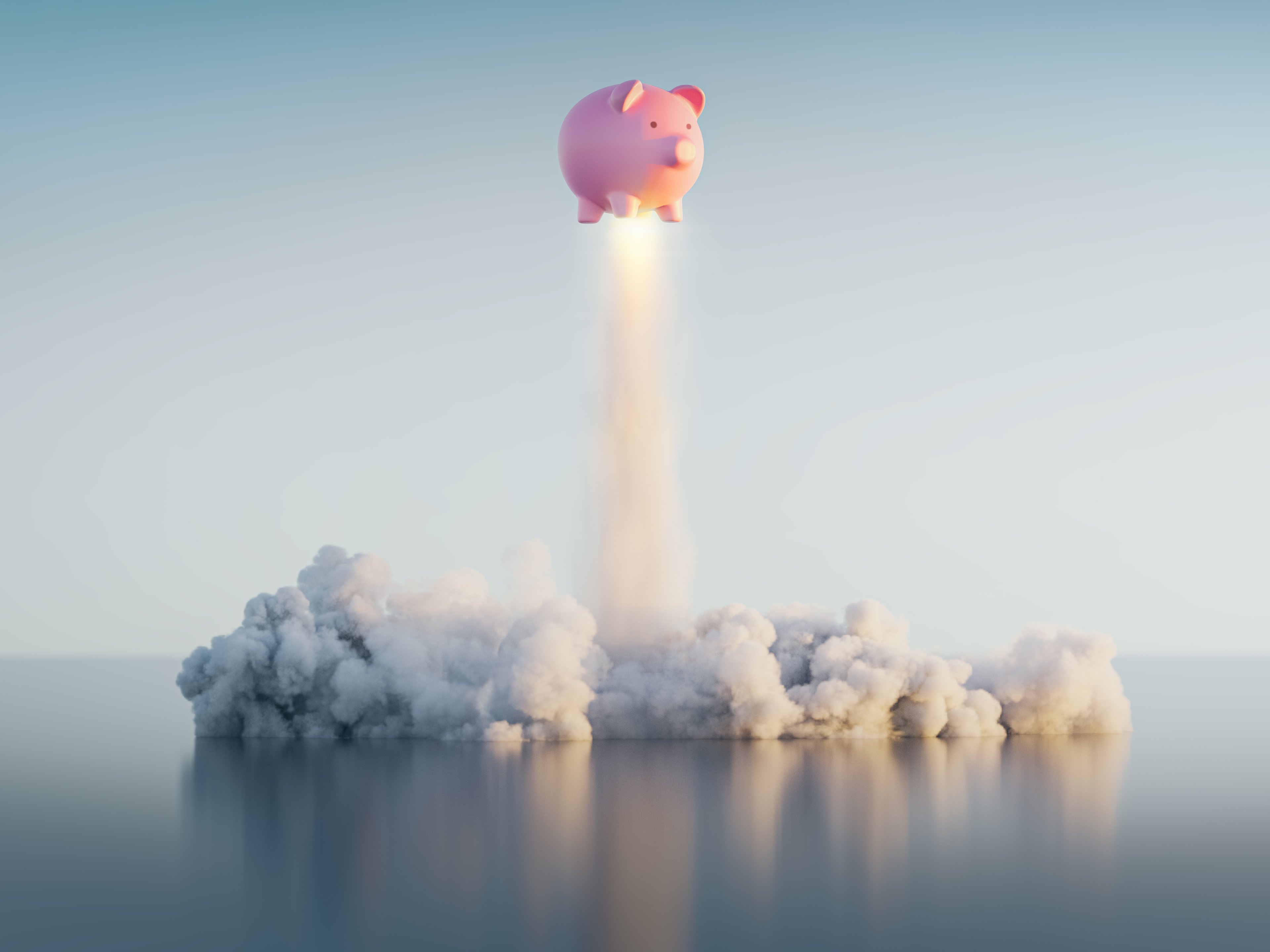In his 2017 letter to Berkshire Hathaway (NYSE: BRK-A)(NYSE: BRK-B) shareholders, Warren Buffett made comments about stocks, bonds, and the risk associated with investing in each. His conclusion? For long-term investors, stocks are the only way to go.
He summed up his thoughts this way: "It is a terrible mistake for investors with long-term horizons -- among them, pension funds, college endowments, and savings-minded individuals -- to measure their investment "risk" by their portfolio's ratio of bonds to stocks. Often, high-grade bonds in an investment portfolio increase its risk."
That's radically different advice from what most investors follow. However, for those with a long-term investment horizon -- which should be most investors -- Buffett's advice on bonds versus stocks makes a lot of sense.

Image source: Getty Images.
The issue of risk and reward
When investors talk about "risk," often they are referring to losing money. To combat that, conventional wisdom says to own a mix of stocks (business ownership) and bonds (lending money to businesses on interest). Because stocks and bonds are different ways to participate in a business' development, they perform differently. In periods of extreme financial stress, bonds can outperform stocks in the short term and offset losses in a portfolio.
That doesn't mean bonds are "less risky" than stocks; it means they have a different set of risks than stocks. That's an important but often misunderstood difference. Buffett acknowledges the short-term risk that can be associated with stocks by using Berkshire Hathaway as an example. He cites four periods in which the market, and Berkshire, fell dramatically.
|
Time Period |
% Decline in Berkshire Hathaway |
|---|---|
|
March 1973 to January 1975 |
59% |
|
October 2, 1987, to October 27, 1987 |
37% |
|
June 19, 1998, to March 10, 2000 |
49% |
|
September 19, 2008, to March 5, 2009 |
51% |
Data source: Warren Buffett's annual letter to shareholders, Berkshire Hathaway 2017 Annual Report.
In spite of those horrific years, Berkshire stock has been averaging about 20% since 1965, when Buffett took over the company. The S&P 500 hasn't done badly, either, averaging over 10% a year. Both handily beat bonds' average single-digit annual return.
Besides losing money in the short term, an equally important risk to think about is not making enough money over time. This is the risk with bonds Buffett is referring to. Over the long term, no other asset outperforms owning a stake in a quality business -- plus, the interest rates on bonds are at historic lows. Here is the performance of the Vanguard Total Stock Market ETF (VTI +0.56%) compared to the Vanguard Total Bond Market ETF (BND 0.10%) with dividends reinvested. For long-term investors, bonds actually reduce returns and add risk.
Data by YCharts.
So when would not making any money be an acceptable risk to take? The simple answer is when you no longer have a long-term investment horizon. Many retirees or soon-to-be retirees mistakenly put themselves into this category, though, and are taking on more risk than they think. That's because the average retirement is expected to last just over 20 years for women and just under 20 years for men currently age 65. Investing for growth to pay for all your needs over that length of time is an important consideration.
That doesn't include if you plan on leaving something behind for children or charity. If that's the case, your portfolio would need to continue working for you even after you pass away, so keeping money in bonds doesn't do your beneficiaries any favors, either.
How to follow the advice
Some short-term reserves still need to be held. If you're retired and don't live solely off of dividend income, holding enough cash to cover expenses for a while is a good idea to allow time for a rebound if the market goes wild. The last thing you want to do is sell stock in the midst of a downturn to pay bills.
If retiring is a long way off, short-term reserves are still a good idea. Even Buffett's Berkshire has a more than $100 billion cash problem, which it plans on deploying to purchase more businesses. That's a good plan for small investors, too, especially in a severe market downturn, when many quality companies go on sale. Having that cash allows you to add to your existing positions to take advantage of a rebound.
Owning shares of quality companies that are growing and reshaping the economy is a great long-term strategy, but some investors might not be comfortable picking individual stocks. For those folks, there are ETFs like the Vanguard Information Technology ETF (VGT +0.69%), an index fund that owns tech businesses of the future. Over the past decade, it has beaten bonds and the broader stock market.
Data by YCharts.
In short, Buffett advises that American shareholders have the wind at their back, so buying and holding stock makes sense for most. Bonds don't have that same tailwind.












